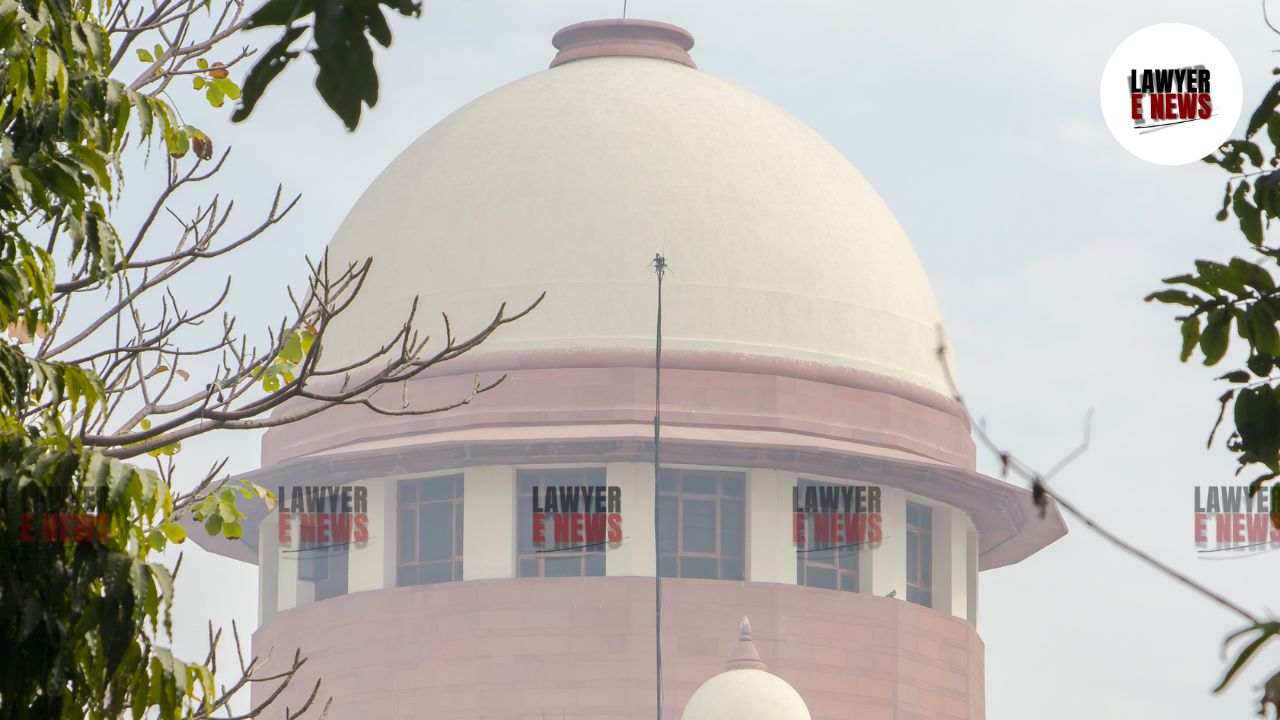-
by Admin
15 February 2026 5:35 AM



On October 24, 2024, the Supreme Court of India in Saroj & Ors. v. IFFCO-Tokio General Insurance Co. & Ors. upheld a higher compensation awarded by the Motor Accident Claims Tribunal (MACT), reversing a High Court decision that had drastically reduced it. The ruling affirmed that the deceased’s School Leaving Certificate should take precedence over conflicting Aadhar Card details for age determination. It also reinstated the MACT’s reliance on the special Deputy Commissioner rates for calculating notional income, rejecting the High Court’s substitution of state minimum wage rates.
The case stemmed from a motor accident on August 4, 2015, involving Silak Ram, who died from injuries sustained in the incident. His family, the appellants, filed a claim for compensation with the MACT, which awarded Rs. 19,35,400 with 7.5% interest based on Silak Ram’s age documented in his School Leaving Certificate and income calculated using Deputy Commissioner rates.
The High Court, on appeal, reduced the compensation to Rs. 9,22,336, applying statewide minimum wage rates instead of the Deputy Commissioner’s special rates and relying on the deceased's Aadhar Card, which recorded his date of birth as January 1, 1969, rather than October 7, 1970 as indicated by his School Leaving Certificate.
Aggrieved by the reduction, the appellants approached the Supreme Court, seeking reinstatement of the MACT’s award.
Key Legal Issues
Age Determination Using Conflicting Documents: Should the deceased’s age be determined based on his School Leaving Certificate or the Aadhar Card?
Notional Income Calculation: Was the High Court justified in substituting the Deputy Commissioner’s rates with minimum wage rates for income calculation?
Interest Rate on Compensation: Was the High Court correct in reducing the interest rate on compensation from 7.5% to 6%?
1. Age Determination: School Leaving Certificate Takes Precedence
The Supreme Court ruled that Section 94 of the Juvenile Justice (Care and Protection of Children) Act, 2015 gives statutory preference to School Leaving Certificates for age determination over other documents, including the Aadhar Card. Under Section 94, the School Leaving Certificate should be given priority in cases of conflicting records unless there is a reason to doubt its authenticity.
“Aadhar Card may not be used as proof of date of birth. The statutory framework under Section 94 of the Juvenile Justice Act prioritizes the School Leaving Certificate when determining age, provided its authenticity is unquestioned.” [Para 10]
Accordingly, the deceased’s date of birth was accepted as October 7, 1970, making him 45 years at the time of the accident, which justified the use of a 14-year multiplier as originally applied by the MACT.
2. Calculation of Notional Income: Deputy Commissioner Rates Reinstated
The Supreme Court found that the High Court had erred by using minimum wage rates in place of the Deputy Commissioner’s special rates without any basis. The Court emphasized that the High Court’s role in an appeal is not to substitute its preferred methodology unless the lower court’s decision is clearly erroneous or lacks evidence.
“The question before the High Court was not which income standard is ‘better’ but rather whether the Deputy Commissioner rates could apply to the deceased. In the absence of contrary evidence, the MACT’s reliance on these rates stands justified.” [Para 9.3]
The Court restored the monthly notional income at Rs. 9,000, as calculated by the MACT.
3. Interest Rate on Compensation: Enhanced to 8%
The Supreme Court noted that compensation in motor accident cases should be fair and reasonable, particularly in instances of death. The High Court’s reduction of the interest rate from 7.5% to 6% was not sufficiently justified, and the Court therefore raised it to 8% per annum, payable from the date of filing of the claim petition.
“High Courts should ensure that compensation awards for accident claims are just and reasonable, considering the injury or death of the claimant or their family member.” [Para 11]
The Supreme Court allowed the appeal, reinstating the MACT’s award with certain adjustments. This ruling reaffirms the primacy of School Leaving Certificates over Aadhar Cards for age determination under the Juvenile Justice Act and underscores the importance of fair and reasonable compensation in motor accident cases.
Date of Decision: October 24, 2024
Saroj & Ors. v. IFFCO-Tokio General Insurance Co. & Ors.
